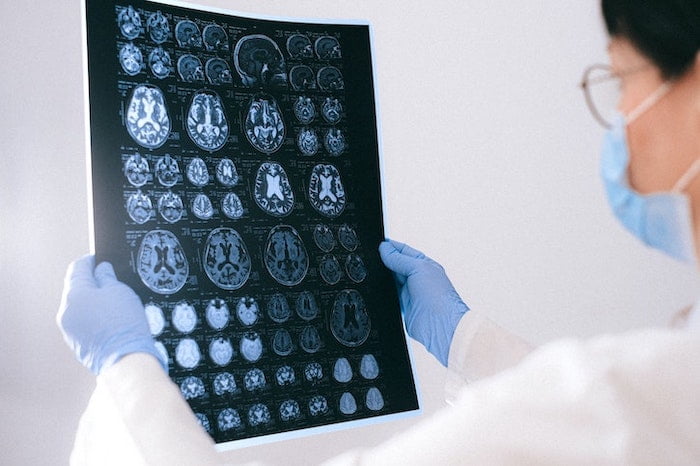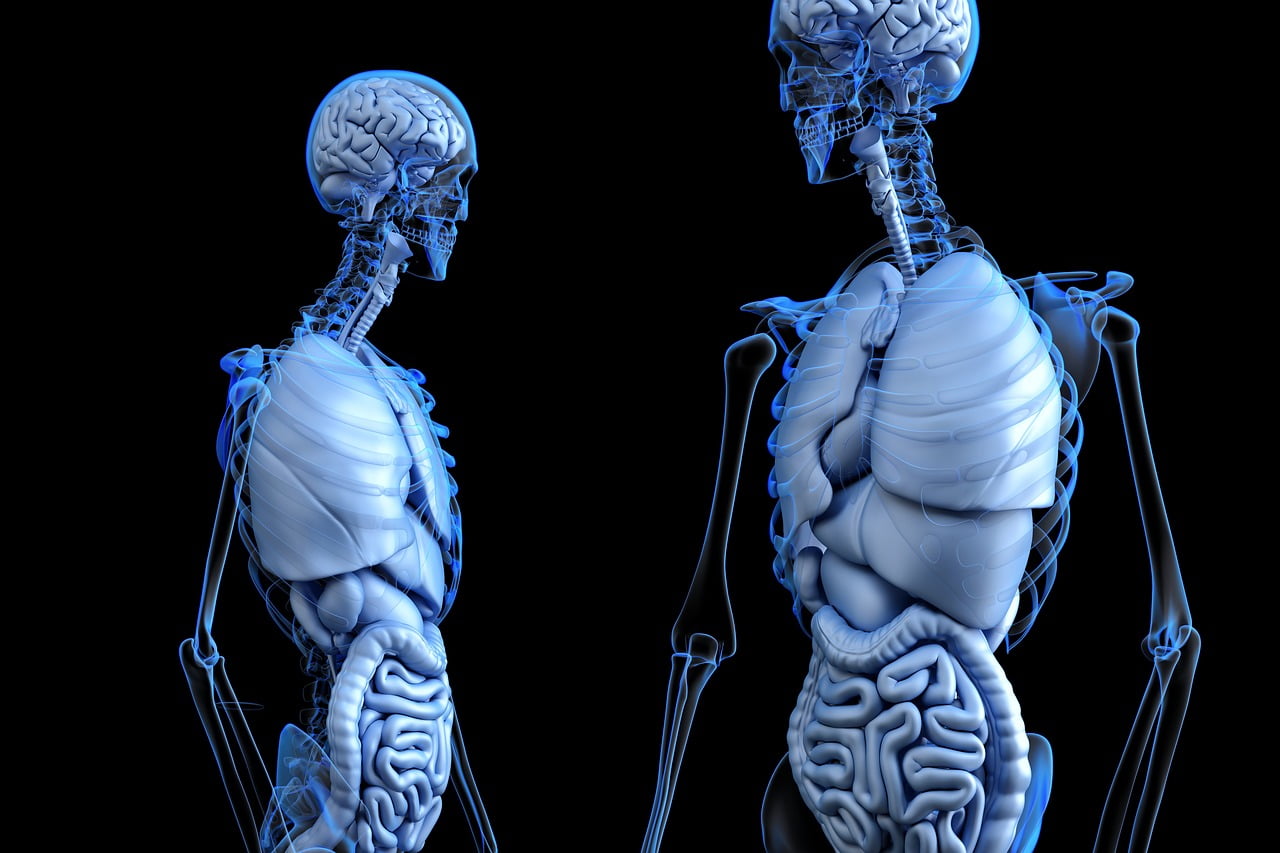Wet Brain is officially known and diagnosed by professionals as Wernicke-Korsakoff syndrome (WKS). It occurs when a person has a deficiency in thiamine (aka vitamin B1). This is therefore linked to poor nutrition.
In the UK, this condition is found in people with severe alcohol use whereas in other parts of the world it also occurs where people have a poor diet. Most commonly it’s characterised by confusion and impaired memory.
If Wernicke-Korsakoff syndrome is identified early enough it’s treatable. For people with alcohol use disorders, this is important information. The quicker treatment is sought, the more benefits there are to mental and physical health outcomes in the future.
What exactly is Wet Brain (aka Wernicke-Korsakoff syndrome)?

Wernicke-Korsakoff syndrome (or Wet Brain, in its slang term) is a life-threatening chronic condition that causes damage to the thalamus and hypothalamus areas of the brain. These parts of the brain regulate sleep, wakefulness and alertness, as well as body temperature, hunger, and metabolic processes.
It’s a condition that can develop when a person consumes high amounts of alcohol over some time. There are two different stages, one leading to the other.
The Two Stages of Wet Brain
Below, we outline the two stages of Wernicke-Korsakoff syndrome:
Stage 1: Wernicke’s Encephalopathy
Wernicke’s encephalopathy is a short-term neurological condition. It’s characterised by confusion, slurred speech, and a loss of coordination when moving around and in the muscles. It causes leg tremors and twitching.
As well as this, involuntary eye movements occur meaning it can be difficult to track objects and there can be vision changes (i.e. double vision).
Drooping eyelids due to paralysis in the nerves that control eye movement is a symptom.
People can also become unsteady when walking; others lose the ability to walk altogether.
It’s important to note that all symptoms aren’t always present. A person can have the condition diagnosed where only two or three signs are apparent.
Stage 2: Korsakoff Psychosis

Korsakoff psychosis also known as alcoholic dementia is the advanced stage of Wernicke-Korsakoff. It’s a chronic memory disorder that also affects emotions and behaviour.
It’s reported that “80% of patients with Wernicke’s disease will develop Korsakoff syndrome”.[1] This is, of course, because of how addictive alcohol is and how difficult it is to quit (especially without professional input).
Korsakoff psychosis is an ongoing chronic type of dementia. It develops when Wernicke’s Encephalopathy has been left untreated. It’s characterised by an impaired ability to learn, amnesia, impairment in both short and long-term memory, and hallucinations.
It usually takes several years of heavy drinking for onset to occur and also often results in behavioural changes and reduced emotional reactions (i.e. a person becoming apathetic). As well as memory issues, people can develop false memories. It’s a condition that causes permanent damage to the brain and brain functioning.
What Causes Wet Brain?

The cause of a wet brain is poor nutrition. In the UK, this is linked to chronic alcohol abuse. Wernicke-Korsakoff is caused by a lack of vitamin B1. This is the vitamin that “functions as a catalyst in the generation of energy”.[2]
Humans need the thiamine ingested in a healthy diet (through poultry, nuts, whole grains, beans, vegetables etc.) to support cells, tissues, organs, and functioning.
How Heavy Alcohol Use Causes Wet Brain

Proper nutrition is gained through a balanced diet. Every cell throughout the body requires vitamin B1/thiamine to work effectively. It’s an essential vitamin that supports the nervous system; brain cells need it to function. It also supports the body to process fats, proteins, and carbohydrates.
A healthy diet means thiamine is absorbed through the gastrointestinal tract – a little is stored in the liver – and moved to tissues around the body to support overall functioning.
This essential nutrient converts glucose (or sugar) into energy and supports the brain to make and send chemical messages.
Alcohol dependency as well as problematic drinking is linked to a poor diet and also a reduced intake of vitamin B1. The body is unable to absorb and process thiamine efficiently due to the effects of alcohol.
This is because of vomiting, poor nutrition, and the digestive tract becoming inflamed. Alcohol abuse also prevents thiamine from being stored in the liver effectively.
To summarise, there is a lack of thiamine being ingested because of diet, a lack of it being absorbed because of the strain on the organs, and a lack of thiamine remaining in the body when a person vomits.
This goes on to reduce enzyme activity and the deficiency causes damage to the brain, nerves, and heart. Heavy drinkers are also more likely to develop cancer, heart failure, and long-term dialysis alongside the risk of Wernicke-Korsakoff syndrome.
The Main Symptoms of Wet Brain Syndrome

The main signs and symptoms of Wernicke-Korsakoff syndrome are very similar to those exhibited when a person is drunk. In this instance, however, the symptoms are also present when the person isn’t intoxicated.
- Loss of muscular coordination (twitching, staggering, tremors)
- Abnormal eye movements (unable to track objects)
- Vision changes (double vision)
- Severe memory loss
- Anemia
- Nutritional deficiencies
- Rapid weight loss and reduced body mass index
In terms of diagnosis, brain scans might reveal brain swelling from Wernicke’s Encephalopathy but it’s a condition that’s usually diagnosed by the symptoms present. At its worst wet brain leads to permanent brain damage, coma, and death.
Can you recover from Wet Brain/Wernicke-Korsakoff Syndrome?

It’s beneficial to be aware that Wernicke-Korsakoff syndrome is reversible in its early stages with the appropriate treatment. In the second stage, it’s partially reversible. Around a quarter of people are treated to make a full recovery, and around half make a partial recovery.[3]
Of course, problematic use, addiction, and dependency make alcohol withdrawal symptoms particularly difficult to face and manage. Alcohol causes one of the most difficult addictions to quit in the world of psychoactive substances.
To recover, a person with this condition will require professional input from experts in both the health and addiction fields.
How is Wernicke-Korsakoff Syndrome Treated?
In relation to Wernicke-Korsakoff or alcohol dementia (as it’s also known), the levels of thiamine need to be addressed.
Medical treatment includes thiamine supplementation in the form of oral supplements or intravenous administration. As well as this, abstinence from alcohol is critical. Support and ongoing input are required to develop the skills and mindset to make a full recovery.
Treatment for Alcohol Use Disorder

Treatment for alcohol addiction is best provided through alcohol rehab programmes. This way you get high-level support from experienced professionals. There are two parts to a rehab programme about recovery.
Firstly, you’ll start with an alcohol detox. This is essential for those who have developed severe addiction or dependency, certainly the case where Wernicke-Korsakoff has developed. The detox lasts between seven to ten days and includes a Librium prescription to manage alcohol withdrawal symptoms.
Once you’ve successfully weaned off the alcohol, attention is turned to the psychological aspect of recovery.
This means you’ll follow a programme of individual, group, psychological and holistic therapies. Within these spaces of learning, self-reflection and realisations, you’ll develop the skills and techniques required to stay sober on leaving rehab.
The types of therapies and activities rehab residents take part in include:
- Cognitive Behavioural Therapy
- Dialectical Behavioural Therapy
- 12 Step-Related Group Work
- Art, Music, and Equine Therapies
- Yoga, mindfulness, and Reiki.
On leaving rehab, an aftercare programme is put in place that will clearly outline steps to follow to support an abstinent lifestyle.
How to Support a Loved One Who has Wernicke-Korsakoff Syndrome

If you are someone with a family member or loved one who has an addiction, it can be incredibly difficult to support them. When a person has developed Wernicke-Korsakoff syndrome this is no different.
There are a few things you can do to maintain a healthy dynamic in the relationship:
- Speak kindly to your loved one and do so with a soothing (but not patronising) tone.
- Set and maintain clear boundaries. Remember, this is a condition not only related to addiction, but also to impaired memory meaning you’re likely to find yourself repeating things often.
- Listen to and validate your loved one’s feelings so they feel heard and respected.
- Look after yourself taking time to focus on your own needs and rest and recuperation. Only through looking after yourself can you support another effectively.
Final Thoughts…

Wernicke-Korsakoff syndrome also known as the wet brain is a condition caused by low thiamine levels. This vitamin is essential to brain and body functioning. It’s instrumental in memory and learning.
In the UK, thiamine levels are associated with alcohol abuse and dependency. In these cases, there’s an association between alcohol use and poor nutrition. Therefore, thiamine (vitamin B1) isn’t accessed. Where it is, the body is unable to absorb and process it.
Treatment in the early stages offers the chance of a full recovery, but people need to access thiamine supplementation as well as become abstinent.
The most effective way to begin the recovery journey is through a rehab programme.
There are many options in the UK. Contact OK Rehab today to find out what your local options are.
FAQs
1. Is Wernicke-Korsakoff syndrome the same as wet brain?
The two conditions are the same, yes. Wet brain is the slang term for Wernicke-Korsakoff syndrome, a condition also referred to as “alcohol dementia”.
2. What are the first signs of Korsakoff?
The first signs of Korsakoff syndrome are confusion and impaired memory so people might start to repeat themselves. Hallucinations as well as changes in emotional reactions (i.e. becoming more apathetic), and behaviours also occur.
3. What are the two stages of a wet brain?
The first stage of the wet brain is Wernicke’s Encephalopathy which is a short-term condition that causes slurred speech and involuntary movements. The second stage is Korsakoff Psychosis which is a long-term condition characterised by memory loss.
4. How long can you live with a wet brain?
It’s difficult to say how long a person will live when the wet brain is diagnosed because of individual factors (i.e. sex, weight, height, alcohol intake) as well as whether the person seeks professional help. Wet brain is reversible if caught in the early stages and treated. Sadly, if diagnosed with end-of-life alcoholism, a person’s prognosis might only be a few months.
5. What are the signs of liver damage from alcohol?
The main signs of liver damage from alcohol include loss of appetite, nausea, confusion, drowsiness, weight loss, vomiting blood, blood in excrement, yellowing of the skin, and swelling in the belly and ankles.
References
[2] https://www.ncbi.nlm.nih.gov/books/NBK537204/
[3] https://www.alzheimers.org.uk/about-dementia/types-dementia/wernicke-korsakoff-syndrome






